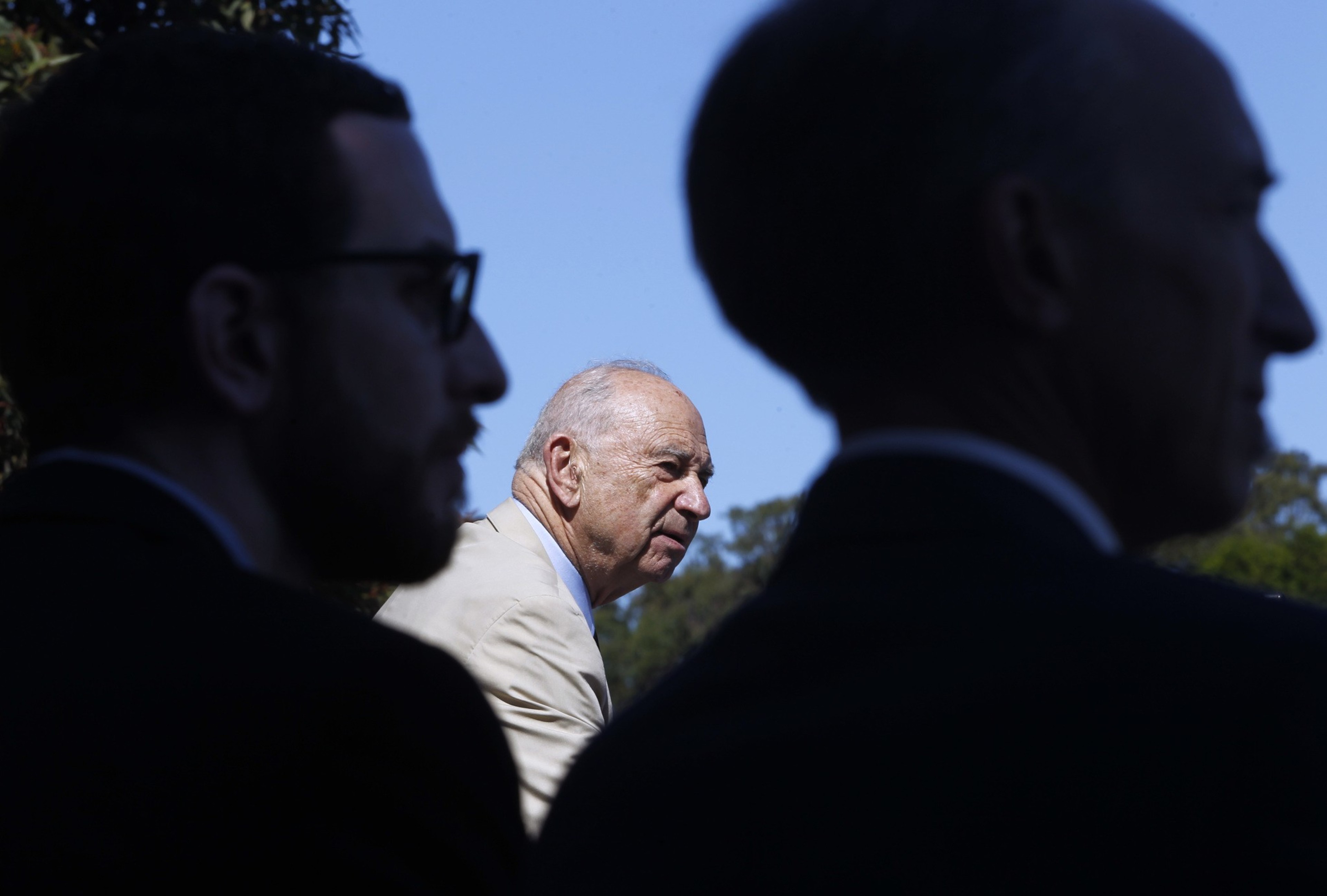A San Francisco political veteran has submitted a ballot measure for the March 2024 election that could radically change the makeup of the Board of Supervisors if it became a reality. The question is: Will voters buy into the idea?
Quentin Kopp is a San Francisco political legend. There’s a freeway named after him (opens in new tab). He’s been a member of the Board of Supervisors, a state senator, Superior Court judge, state rail commissioner and city ethics commissioner.
A staunch independent, he’s witnessed the trajectory of the city’s politics from the rise of the Phil Burton Democratic machine to today’s angst-ridden, tech-driven politics. And at 95 years old, he’s still practicing law and making his opinions known (opens in new tab).
And he just made one of the most provocative proposals the city has seen in a long time.
Kopp’s measure is a charter amendment (opens in new tab) that would “let all voters participate in electing all 11 members of the Board of Supervisors, while ensuring every neighborhood has representation on the board, by providing for election of supervisors at-large from districts,” he said in an interview.
In other words, all San Francisco voters would be able to vote for all the district supervisors, no matter where they lived. To understand the potential impact of this, it helps to look at some of the numbers involved.
The average population of a supervisorial district before last year’s redistricting was around 70,000, and the average number of registered voters was 44,000. In the last supervisorial election before redistricting, November 2020, Supervisor Hillary Ronen received the largest number of first-choice votes to win her largely uncontested supervisorial contest, with 27,481 votes.
By contrast, the number of votes for elected members of the Board of Education, whose members are elected in a citywide vote, ran from 144,000 to 195,000 votes in the November 2020 election.
But there’s growing dissatisfaction with district elections, with stakeholder groups floating ideas to alter the current system, which has been in place since 2000 (opens in new tab).
The moderate political group TogetherSF recently commissioned a report on reforming San Francisco’s governance, including recommendations to move toward a “hybrid system” of electing supervisors with a combination of district and at-large seats.
Kopp is proposing a different sort of hybrid board altogether. But like the TogetherSF proposal, it’s influenced by a recent California Supreme Court decision, Pico Neighborhood Association v. City of Santa Monica, reaffirming the state’s Voting Rights Act (opens in new tab), which allows for the institution of district elections to protect against diluting minority votes.
“What I really wanted to see is the return of at-large election [of supervisors] without districts,” Kopp told The Standard in a phone call. “But the Pico case blocks that. So we’re proposing district supervisors elected at-large.”
“We expect it will pass,” he added. “Everyone I’ve talked to supports a return to at-large because of the condition of the city.”
A Changing Board

The author of the proposal is Robert Guichard, who wrote a charter amendment establishing at-large supervisor elections that barely passed in an August 1980 special election.
The city has switched up Board of Supervisors elections multiple times over the years. San Francisco had approved district elections of supervisors in 1976, a political victory for progressives. The following election in 1977 saw the election of a very diverse board, including Harvey Milk, San Francisco’s first gay supervisor.
Dan White, a social conservative, was also elected in 1977. He would murder both Milk and Mayor George Moscone over a political grudge the following year.
A 2000 article (opens in new tab) by the San Francisco Bay Area Planning and Urban Research Association (SPUR) noted that “the tragic assassinations severely damaged the image of the district electoral system.”
Despite Kopp’s enthusiasm, the measure may have an uphill battle. In order to get on the ballot, supporters would need to secure the votes of six members of the current board of supervisors, or at least 49,794 petition signatures (opens in new tab) of registered voters, by this November.
So far, not too many of the city’s political world are ready to comment on the proposal. But Board of Supervisors President Aaron Peskin, who was first elected to the board in 2000 (opens in new tab), isn’t a fan.
“Apparently, former San Mateo County Judge Quentin Kopp doesn’t seem to be concerned about violating the federal Voting Rights Act,” he said.
